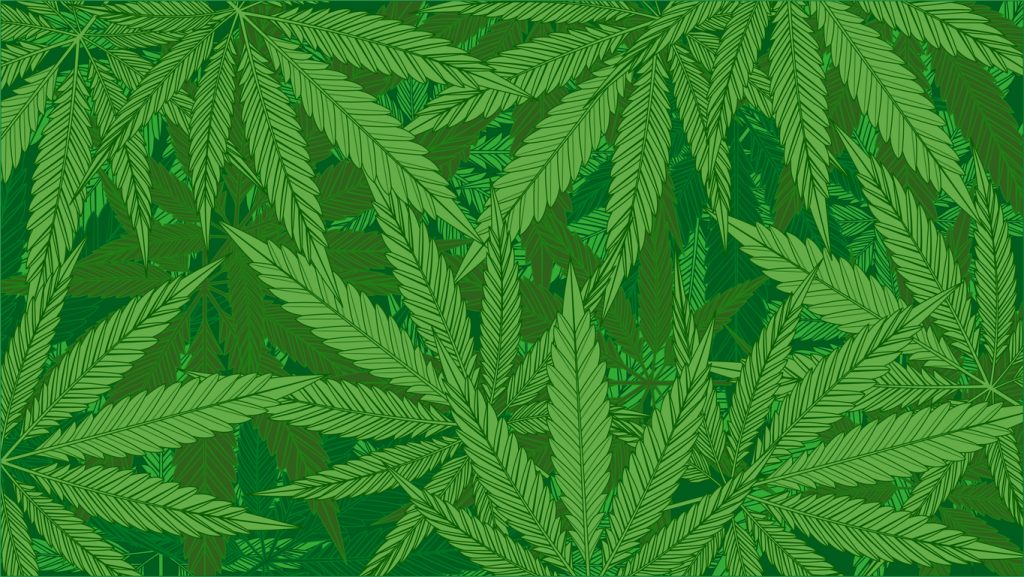
While much attention is focused on states and the federal government’s efforts to legalize recreational marijuana, there is a new form of thus far unregulated tetrahydrocannabinol (THC) trending—delta-8. Google searches for “delta-8” reportedly grew by more than 850% in the United States between 2020 and 2021. A recent study shows that 16% of regular marijuana users also use delta-8. Due to delta-8 being largely unregulated, state lawmakers around the country are looking to institute various laws around it, including delta-8 bans and carve-outs.
According to the Food and Drug Administration (FDA), delta-8 THC is a psychoactive substance in the cannabis sativa plant. Marijuana and hemp are two plant varieties; delta-8 is one of over 100 cannabinoids produced naturally by the plant. However, delta-8 is not found in significant amounts in the cannabis plant. As a result, concentrated amounts are typically manufactured from cannabidiol (CBD). The Centers for Disease Control and Prevention (CDC) issued an official health advisory in September of 2021, noting that the rise in delta-8 products has increased the availability of psychoactive cannabis products in areas where non-medical adult cannabis use is not legal.
Georgia
Georgia lawmakers introduced SB 614 in the 2021–2022 legislative session related to delta-8 THC. Specifically, the legislation provides that delta-8 THC derived from hemp is not considered marijuana or tetrahydrocannabinol, tetrahydrocannabinol acid, or a combination of the two. The bill further provides that it shall not be unlawful to purchase, possess, manufacture, distribute, sell, or consume delta-8 THC derived from hemp and makes clear that no one in Georgia shall be subject to arrest, charge, or prosecution for purchasing, possessing, manufacturing, distributing, reselling, or consuming delta-8 THC derived from hemp.
The Senate Health and Human Services Committee has not yet passed the bill.
Hawaii
State lawmakers introduced HB 1886, a delta-8 ban, in January 2022. Expressly, the bill would prohibit a person from selling, holding, offering, or distributing for sale any hemp product that contains cannabinoids created through isomerization, including but not limited to delta-8. The legislation saw some action at the committee level in the House before eventually being referred to the Committee on Judiciary, which deferred the measure in late March.
Pennsylvania
In April 2022, several Pennsylvania lawmakers released a cosponsorship memo for delta-8 THC legislation. While the bill text has not yet been released, the memo states that the bill would ban products that contain delta-8 THC derived from hemp.
South Dakota
In March 2022, Governor Kristi Noem (R) signed House Bill 1292 into law, implementing a delta-8 ban for those under the age of 21. The bill makes it unlawful to knowingly sell or distribute delta-8 THC to those under 21. The bill also makes it unlawful to purchase or attempt to purchase, the receipt or attempt to receive, the possession, or the consumption of, a product containing delta-8. A violation of the bill is a class 2 misdemeanor.
Tennessee
Tennessee lawmakers introduced HB 1690/SB 1767 in the 2022 legislative session, but both bills failed when the session ended. The bills would have prohibited the sale of products containing hemp-derived cannabinoids or the purchase of products containing a hemp-derived cannabinoid on behalf of those under the age of 21. Included in the definition of a “hemp-derived cannabinoid” is delta-8 THC. The bills also would have created a new wholesale tax on selling products containing hemp-derived cannabinoids, equal to 6.6% of the wholesale sales price per hemp-derived product sold.
Latest News
Photo credit: iStock.com/naturalbox The debate over raw milk legislation has intensified in 2024, with several states introducing or passing bills that address the sale and distribution of unpasteurized dairy products. Raw milk has not undergone [...]
In this episode of the Back in Session podcast, hosts Ryan Stevens and Ryan DeMara sit down with Terra McClelland, President of the State Government Affairs Council (SGAC) and Vice President of Government and External [...]
Photo credit: iStock.com/MiMaLeFi Twenty-four states, two territories, and the District of Columbia have legalized cannabis for adult recreational use. In contrast, the United States government has regulated cannabis under the Controlled Substances Act (CSA) as [...]
Photo credit: iStock.com/Vladyslav Horoshevych Vaping has become increasingly popular among school-age Americans. A recent study found that 2.5 million U.S. youth vape. Relative to other nicotine products, young adults commonly prefer battery-operated devices like e-cigarettes, [...]






Stay In Touch